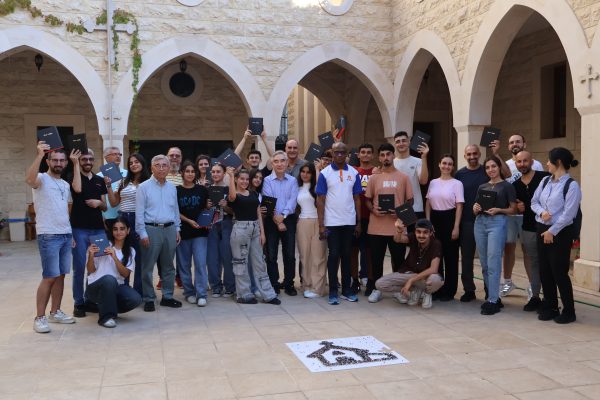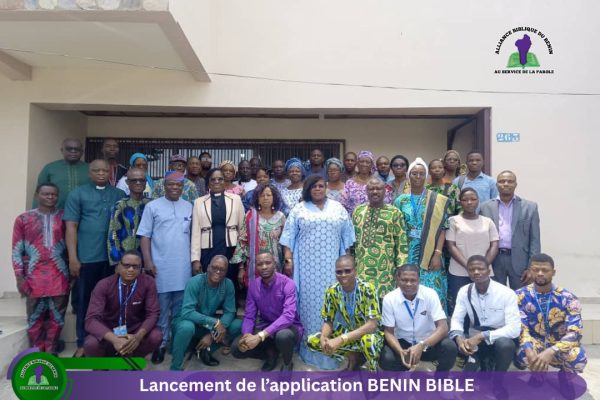
May 28, 2025
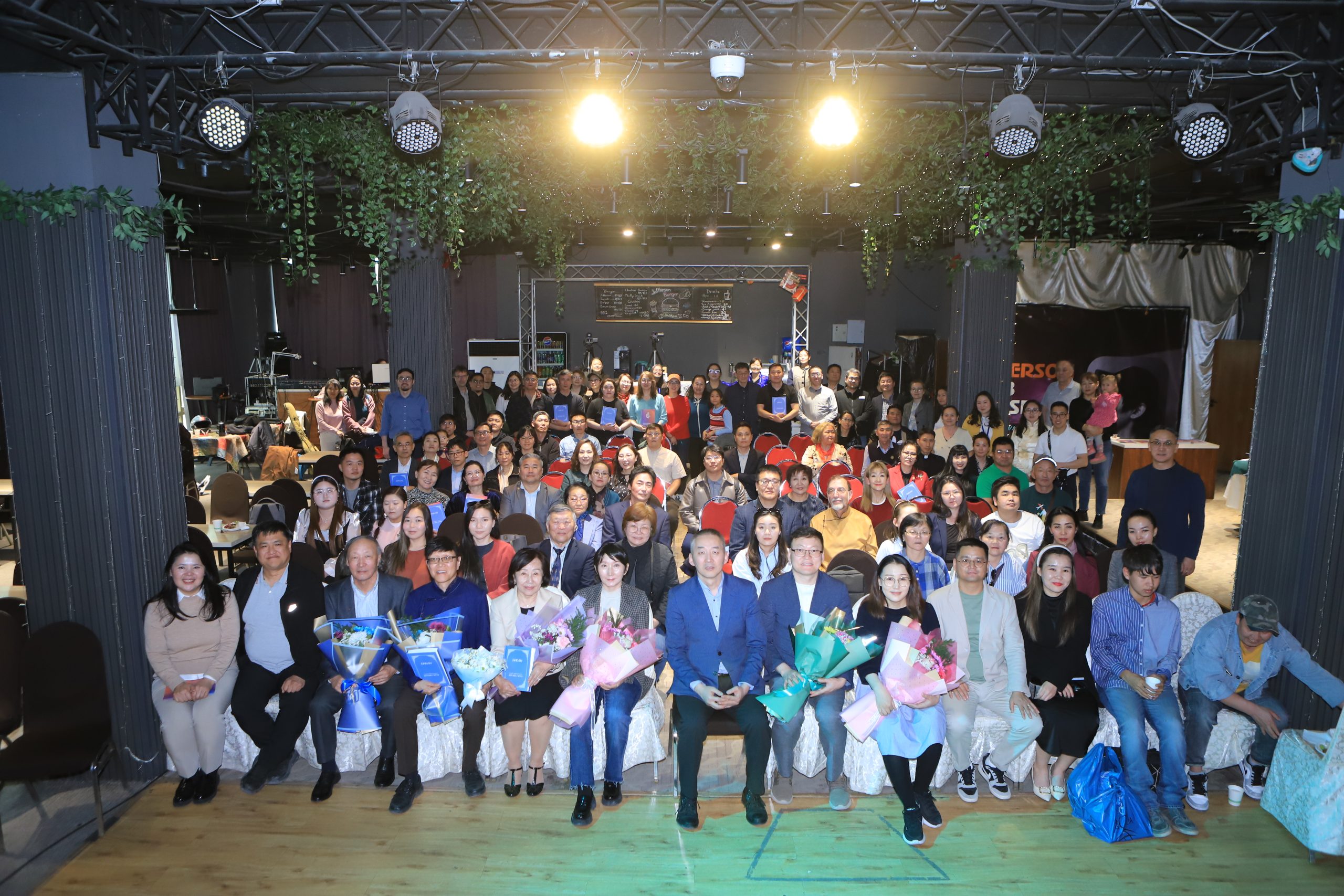 On April 28, the Mongolian Union Bible Society (MUBS) celebrated a significant achievement: launching the Old Testament of the Mongolian Standard Version (MSV) – a new translation for modern Mongolians in the Khalkh dialect. This landmark event marked the culmination of over a decade of dedicated work—translating the Old Testament from the original biblical languages into Mongolian by an all-Mongolian team for the very first time.
On April 28, the Mongolian Union Bible Society (MUBS) celebrated a significant achievement: launching the Old Testament of the Mongolian Standard Version (MSV) – a new translation for modern Mongolians in the Khalkh dialect. This landmark event marked the culmination of over a decade of dedicated work—translating the Old Testament from the original biblical languages into Mongolian by an all-Mongolian team for the very first time.
The Mongolian Standard Version represents a strategic step forward in serving the growing Christian community in Mongolia. As the Church continues to expand in this Central Asian nation, access to accurate and understandable Scripture in Mongolians’ heart language is more vital than ever.
The translation has already been well received in Mongolia and among diaspora Mongolians in Europe and North America—many of whom have lacked quality biblical resources in their language.
Translation Born from Vision and Precision
 Commencing in 2014, the MSV project began with careful planning, translator selection, and training in biblical languages and linguistics. Five key goals guided the work from the outset:
Commencing in 2014, the MSV project began with careful planning, translator selection, and training in biblical languages and linguistics. Five key goals guided the work from the outset:
- To translate the Scriptures from the original biblical languages into Mongolian by a team of all Mongolians.
- To ensure accuracy and faithfulness to the original text.
- To make the translation clear when read aloud.
- To reflect natural Mongolian language and expressions.
- To be understandable by modern readers.
Translation began in the second half of 2015, with the team working sequentially through the books to strengthen their skills and develop biblical terminology over time. By 2017, the first four books—Ruth, Jonah, Joshua, and Judges—were completed, checked, and released digitally and in print. Over the following years, additional books were published incrementally, with Isaiah being the final Old Testament book released online in May 2022.
Throughout the project, a digital-first approach proved invaluable. The MSV is available now via a dedicated website (http://www.msv.bible) and a dedicated mobile app, Bible MSV (available for iOS and Android). These digital platforms allowed for wide access and early usage by churches and individuals and created opportunities for valuable feedback.
Rich Resource and Thoughtful Design for the Mongolian Church
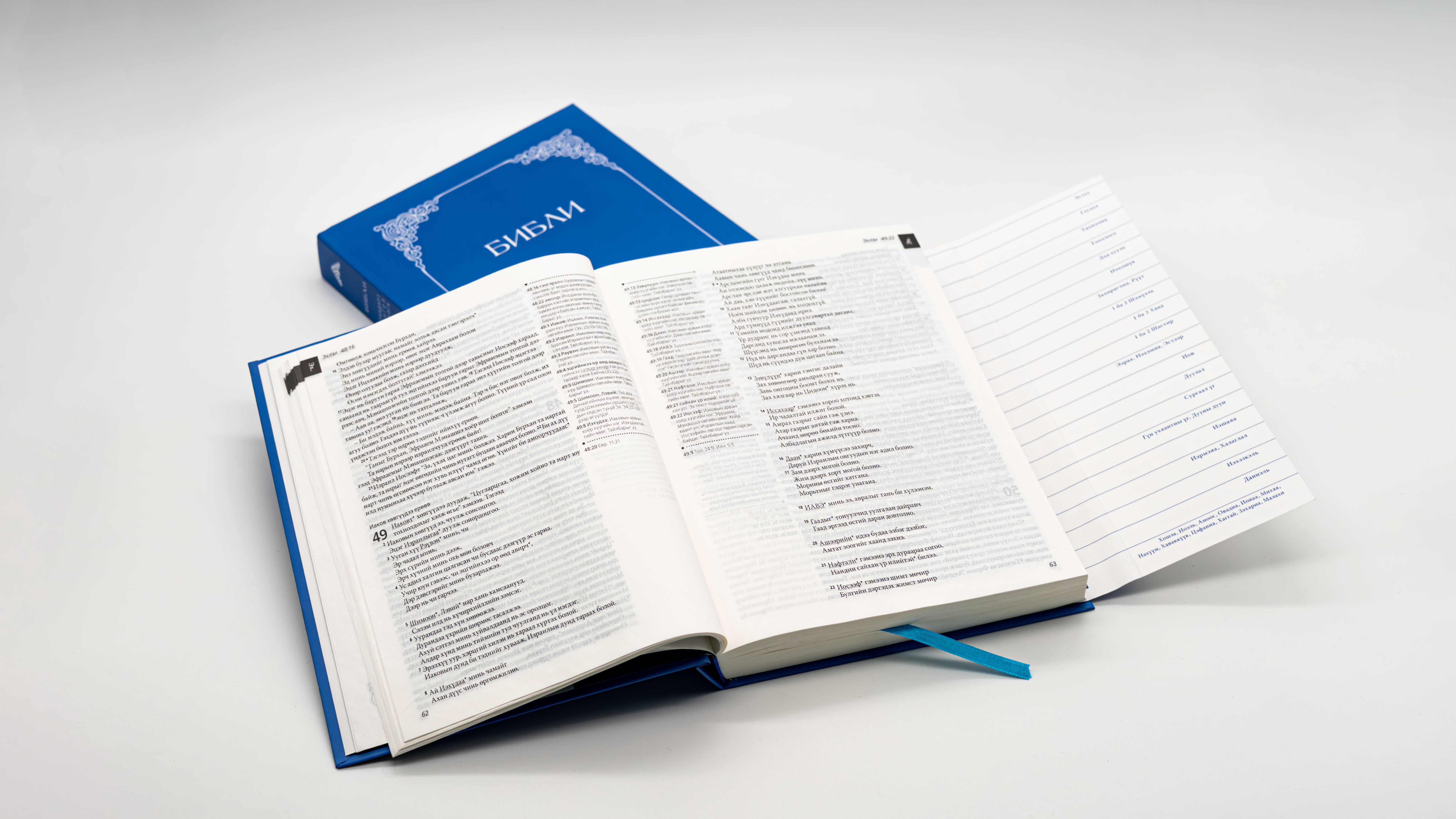 The completed MSV Old Testament was translated to be a rich study resource. It includes:
The completed MSV Old Testament was translated to be a rich study resource. It includes:
- 11,400 footnotes,
- 283 glossary entries,
- Nearly 2,000 cross-references,
- Book introductions and outlines,
- Over 40 illustrations and maps, and
- Detailed transliterations and poetic formatting to reflect the style and structure of the original Hebrew text.
The translation team employed Mongolian poetic devices such as alliteration in poetic books, ensuring that passages sounded natural and resonant to the Mongolian ear. Acrostic psalms, for example, highlight the Hebrew alphabet patterning used in the originals—bringing clarity and beauty to Mongolian readers and listeners alike.
The printed edition features a considered, culturally resonant design. Traditional Mongolian patterns grace the covers and page headings, while user-friendly elements such as single-column text, spine-aligned footnotes, and protective fold-over covers make the book attractive and durable. Every detail aims to enhance Scripture engagement and invite deeper reflection.
A Global Effort in Fellowship
This project was a remarkable testament to global partnership. MUBS expressed deep gratitude to the many Bible Societies and partners who contributed over the years—including the British and Foreign Bible Society, American Bible Society, Japan Bible Society, Bible Society Australia, Norwegian Bible Society, Canadian Bible Society, Swiss Bible Society, Austrian Bible Society, and many others—along with individuals, churches, and consultants who supported through prayer, expertise, and funding.
“This has been a true example of partnership… and it has been wonderful to see God’s faithful and gracious provision,” MSV Project Manager, Dr. Bayarjargal Garamtseren shared.
Special thanks are extended to the German Bible Society, whose BasisBibel resources supported book introductions and footnotes, to Dr Suee Yan and the Asia Pacific UBS team for technical consultancy, and to the Korean Bible Society, which carefully coordinated the print production.
Looking Ahead: New Testament Completion on the Horizon
The New Testament translation of the MSV is well underway, with 17 books already available digitally. MUBS hopes to complete the NT this year—offering Mongolian Christians access to a complete, locally translated Bible in language that speaks to their hearts.
“Please pray that the project will be completed successfully, and that this new translation will be used broadly and effectively for the Gospel,” said Rev. Bayardalai Bayarmagnai, MUBS General Secretary. “Not only in Mongolia, but also among diaspora Mongolians around the world.”
Life and Faith in Mongolia
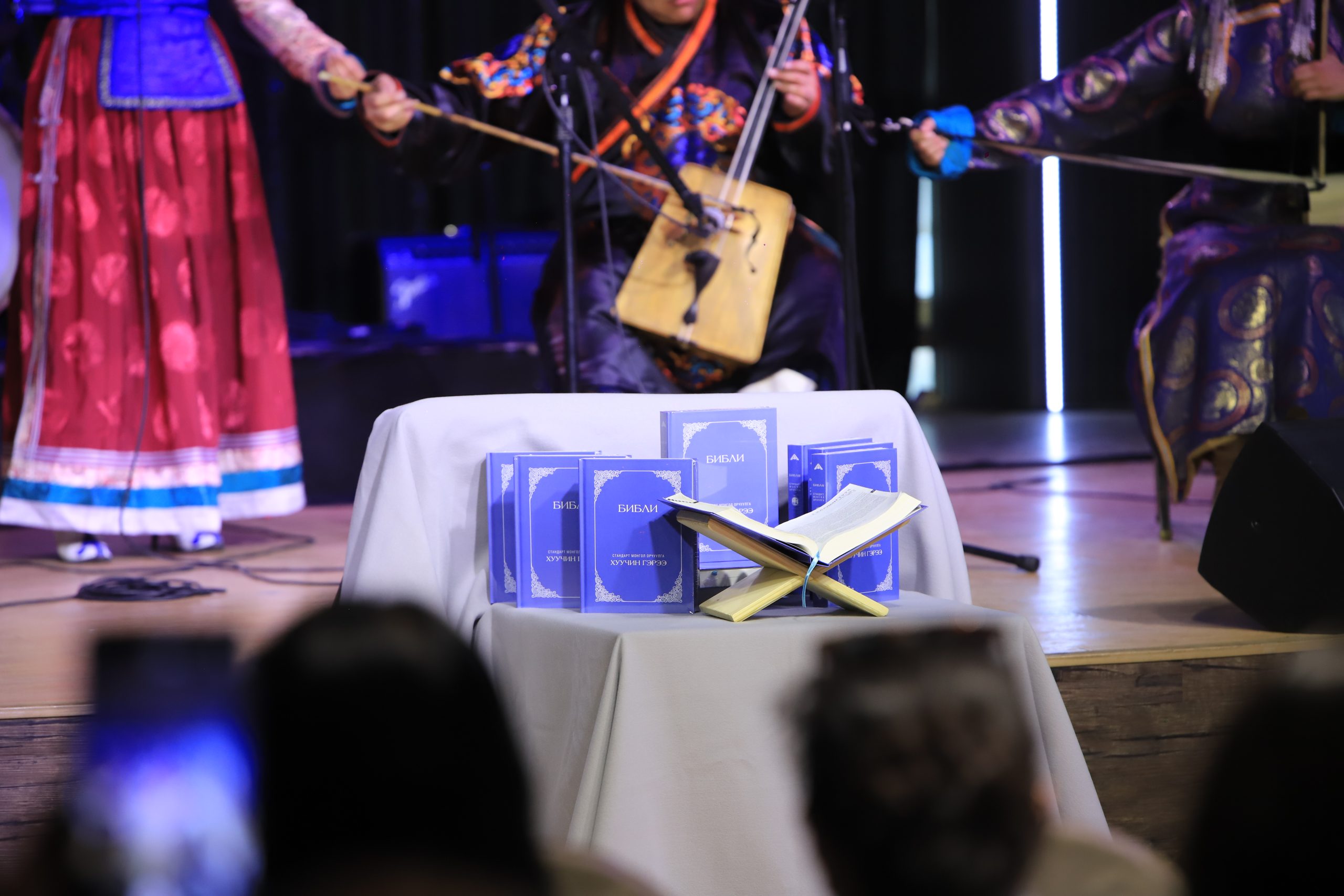 Mongolia, a vast and rugged landlocked country between Russia and China, is home to a population of 3.5 million people – approximately 65,000 of whom are Christians. Traditionally rooted in nomadic culture, Mongolian life is shaped by close ties to nature, strong family structures, and deep cultural pride. While urban centres like Ulaanbaatar are rapidly modernising, many still live in rural areas where herding and seasonal migration remain central to daily life. Historically influenced by Tibetan Buddhism and shamanistic practices, Mongolia has seen significant religious transformation in recent decades.
Mongolia, a vast and rugged landlocked country between Russia and China, is home to a population of 3.5 million people – approximately 65,000 of whom are Christians. Traditionally rooted in nomadic culture, Mongolian life is shaped by close ties to nature, strong family structures, and deep cultural pride. While urban centres like Ulaanbaatar are rapidly modernising, many still live in rural areas where herding and seasonal migration remain central to daily life. Historically influenced by Tibetan Buddhism and shamanistic practices, Mongolia has seen significant religious transformation in recent decades.
Following the fall of communism in the early 90s, Christianity experienced remarkable growth in Mongolia. The young Mongolian Church is vibrant and expanding, with many first-generation believers coming to faith. Access to Scripture in the Mongolian language has played a vital role in spiritual formation and discipleship. Mongolia uses the Khalkh dialect as the official language and all Mongolians understand this main dialect. With over 95% literacy rates, most Mongolian people can read and write the Khalkh dialect. As more Mongolians encounter the Bible in a language and format they can understand, the gospel continues to take root, bringing hope, identity, and purpose to communities across the country.


